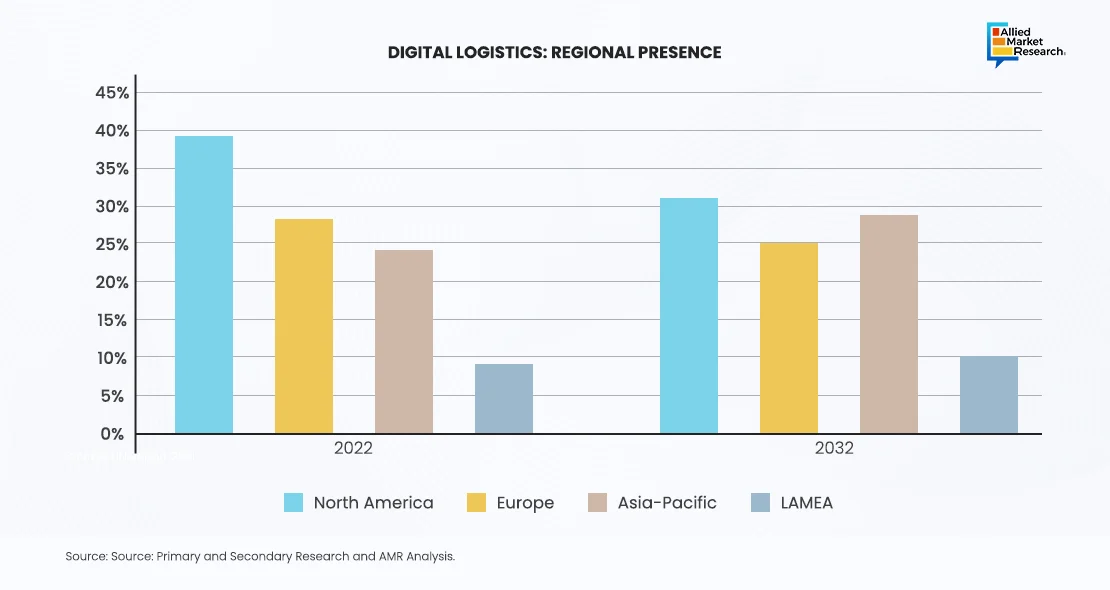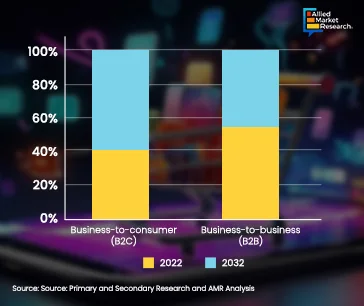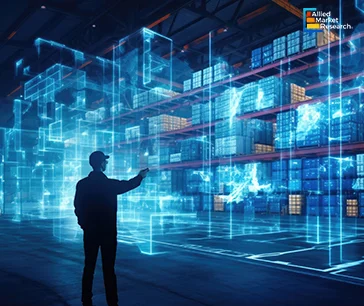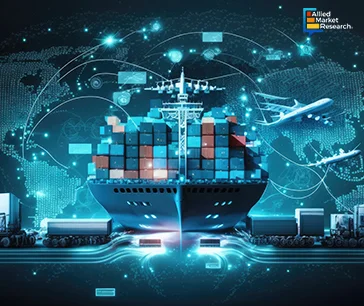Table Of Contents
- Real-time Monitoring Reshaping the Industry
- Management of logistical functions
- Cloud Technology to Gain Ground
- The Boom of Online Retail
- Digital Logistics - A Potential Tool for the Retail and E-commerce Industry
- The Future of Digital Logistics Industry
- Challenges in the Digital Logistics Industry
- Future Trends to Revolutionize Digital Logistics
- Digital Logistics: A Game-changing Solution

Onkar Sumant

Shraboni Sen
Digital Logistics: A Sure-fire Approach to Success

Digital logistics refers to the use of digital technologies and data-driven solutions to optimize and streamline logistics operations. It involves the application of various technologies such as the Internet of Things (IoT), artificial intelligence (AI), big data analytics, blockchain, and cloud computing to enhance the efficiency, visibility, and effectiveness of supply chain and logistics processes. Real-time tracking and monitoring capabilities provided by IoT devices offer visibility of the location, condition, and status of shipments throughout transportation. Advanced analytic tools analyze data from various sources to derive insights that aid in decision-making, which enables predictive insights to anticipate logistical demand, optimize routes, and improve inventory management. Automation technologies streamline operations, while collaborative platforms facilitate communication and coordination among stakeholders. Owing to such factors, digital logistics enhances efficiency, transparency, and agility across the supply chain, leading to improved customer satisfaction and competitive advantage for businesses.
Real-time Monitoring Reshaping the Industry
Digital logistics has reshaped the logistics industry by revolutionizing efficiency through real-time tracking and monitoring. The companies can now track shipments with unprecedented precision, leading to better inventory management, reduced transit times, and minimized losses due to theft or damage by leveraging IoT devices and sensors. Moreover, digital logistics has enhanced decision-making through advanced analytics. Companies are able to extract valuable insights from massive datasets, enabling them to optimize routes, anticipate demand fluctuations, and proactively identify & mitigate potential supply chain disruptions by harnessing big data analytics and AI. Robotics and autonomous vehicles are increasingly being deployed in warehouses and distribution centers, streamlining tasks such as picking, packing, and sorting. It improves efficiency, however, also reduces labor costs and minimizes the risk of errors. For instance, in June 2023, Honeywell introduced its new Honeywell Digital Prime solution, a cloud-based digital twin for tracking, managing, and testing process control changes and system modifications. Digital Prime is a cost-effective solution that allows users to test frequently for accurate results while resulting in an overall reduction in reactive maintenance.
Management of logistical functions
Digital logistics platforms facilitate warehouse management, transportation management, and workforce management. This versatile strategy spans across industries, harnessing the rapid expansion of e-commerce and the demand for seamless order processing & quick deliveries. For example, in September 2023, Honeywell introduced its latest software technology designed to address the rise in demand for warehousing, order fulfilment, and distribution needs in Southeast Asia and other global markets. The company introduced its MesonX Warehouse Management System (WMS), a software solution designed to improve and streamline warehouse and distribution center (DC) operations.
Cloud Technology to Gain Ground
Cloud technology enables companies to store and access vast amounts of data and applications remotely, making it easier to manage and optimize complex supply chains. This has led to increased efficiency, reduced costs, and improved visibility throughout the logistics process. Moreover, globalization has expanded the reach of businesses, which requires them to manage supply chains spread across the globe. Digital logistics solutions leverage cloud-based platforms to provide real-time tracking data, predictive analytics, and seamless communication to all stakeholders, including suppliers, manufacturers, and consumers involved in the process. This ensures smoother operations and enables companies to adapt to changes in market conditions quickly. As the world becomes more interconnected, the demand for digital logistics solutions is expected to continue to rise, creating a promising market for innovative technologies and services that reinforce the future of efficient and sustainable supply chain management.

The Boom of Online Retail
E-commerce businesses are constantly striving to deliver products faster, cheaper, and with greater accuracy to meet customer expectations. This has led to the adoption of advanced technologies such as automated warehouses, route optimization, and real-time tracking systems, all of which are integral to digital logistics. Digital logistics enables businesses to manage their supply chains more effectively, reducing lead times and inventory costs.
It also allows for better demand forecasting, which minimizes stockouts and overstock situations. Furthermore, the rise of multi-channel retailing, including mobile shopping and social commerce, has made logistics even more complex, requiring real-time data sharing and synchronization across various platforms. Thus, the expansion of e-commerce has propelled the digital logistics market forward by necessitating innovative solutions to meet the growing demand for fast and efficient product delivery in today's digital age. This trend is likely to continue as online shopping becomes increasingly integrated into their daily lives. The graph below shows the model type in e-commerce sector with the shares in 2022 and 2032.
Digital Logistics - A Potential Tool for the Retail and E-commerce Industry
Retailers and e-commerce companies leverage logistical technologies to streamline their supply chains, reduce operational costs, and meet the increase in demand for faster, more efficient delivery services.

Key trends that are expected to shape the outlook of digital logistics industry are utilization of AI & ML for demand forecasting, route optimization, and warehouse automation. Moreover, the integration of IoT devices for real-time tracking and monitoring of goods has become increasingly important. For instance, in October 2023, Infosys, a global leader in next-generation digital services and consulting, and Economist Impact announced the launch of the Value Chain Navigator (VCN) to help businesses understand and address their Scope 3 emissions. Scope 3 includes all indirect emissions that occur in the upstream and downstream activities of an organization's value chain.

The Future of Digital Logistics Industry
In the future the digital logistics industry is poised to undergo significant advancements that are projected to reshape the way goods are transported, managed, and delivered across the supply chain. One of the most prominent shifts is the widespread integration of Internet of Things (IoT) technology, which is expected to enable even greater levels of real-time tracking, monitoring, and optimization. IoT sensors embedded in products, vehicles, and infrastructure are anticipated to provide unprecedented visibility into every stage of the logistics process, allowing for more efficient route planning, inventory management, and resource allocation.
Artificial Intelligence (AI) and Machine Learning (ML) play an increasingly integral role in optimizing logistics operations. AI algorithms analyze vast amounts of data to identify patterns, predict demand fluctuations, and automate decision-making processes. This leads to more responsive and adaptive supply chains that quickly adjust to change in market conditions, minimize delays, and optimize resource utilization. In addition, AI-powered predictive maintenance helps reduce downtime by anticipating equipment failures before they occur, thus improving overall operational efficiency. Blockchain technology enhances transparency, security, and trust within the logistics ecosystem. By providing an immutable and decentralized ledger of transactions, blockchain enables seamless and secure data exchange among supply chain partners, reducing the risk of fraud, errors, and disputes. Smart contracts powered by blockchain automate and streamline contractual agreements, payment processing, and compliance verification, further enhancing the efficiency and reliability of logistics operations. In 2024, the logistics industry is poised for transformative shift driven by sustainable practices, widespread technology adoption, and accelerated digitization. The integration of eco-friendly initiatives is expected to redefine supply chains, emphasizing sustainability. Technological advancements, particularly in AI and IoT, optimize operations, enhance efficiency, and provide real-time insights. Digitization streamlines processes, fostering seamless communication and transparency. These trends are expected to significantly boost operational agility, and cultivate a tech-driven ecosystem, ultimately enhancing overall performance and customer satisfaction.

Challenges in the Digital Logistics Industry
While the future of digital logistics holds immense promise, several challenges lie ahead that must be addressed for the industry to fully realize its potential. The critical challenges are data security and privacy concerns. With surge in reliance on digital technologies and the vast amount of data generated within the logistics ecosystem, protecting sensitive information from cyber threats and unauthorized access has become paramount. Ensuring robust cybersecurity measures and compliance with data protection regulations are expected to be essential in safeguarding confidential data and maintaining trust among supply chain partners & customers.
With the proliferation of various digital solutions and technologies, achieving seamless integration and compatibility between different systems is complex. Standardized data formats, communication protocols, and interoperable interfaces are crucial in facilitating smooth data exchange and collaboration among stakeholders, thereby enhancing the efficiency and effectiveness of digital logistics operations.
Future Trends to Revolutionize Digital Logistics
The market is poised to witness transformative trends
The logistics industry is expected to become more interconnected as digital technologies continue to advance. Increased connectivity among devices, systems, and stakeholders facilitates seamless communication, data sharing, and collaboration across the supply chain. The use of predictive analytics and AI is projected to become sophisticated, enabling logistics companies to anticipate demand, optimize routes, and proactively address potential disruptions. AI-powered predictive maintenance is expected to help minimize downtime by identifying and resolving equipment issues before they occur.
The adoption of autonomous vehicles, including trucks, drones, and delivery robots, is anticipated to increase, revolutionizing last-mile delivery and warehouse operations. These technologies are projected to improve efficiency, reduce costs, and enhance safety in logistics operations. Blockchain technology is expected to gain further traction in digital logistics for its ability to provide transparent and immutable records of transactions. By enhancing traceability and authenticity, blockchain is anticipated to improve trust and visibility across the supply chain, reducing fraud and errors.
Warehouses are projected to become smarter and more automated, with the widespread adoption of robotics, automated guided vehicles (AGVs), and warehouse management systems (WMS). These technologies are expected to streamline picking, packing, and sorting processes, increasing efficiency, and reducing labor costs. Sustainability is a key concern in digital logistics, driven by environmental issues and regulatory pressures. Companies are expected to implement eco-friendly practices, such as optimizing transportation routes to minimize carbon emissions, reducing packaging waste, and adopting renewable energy sources.
AR and VR technologies are projected to be increasingly utilized for training, maintenance, and remote assistance in logistics operations. These immersive technologies are anticipated to improve employee training, enhance situational awareness, and streamline maintenance tasks. Logistics companies are expected to prioritize customer-centric solutions, focusing on providing real-time visibility, personalized services, and seamless delivery experiences.
Digital Logistics: A Game-changing Solution
Digital logistics represents a transformative approach to managing the movement of goods within the supply chain, leveraging advanced technologies such as IoT, AI, blockchain, and automation. The adoption of digital logistics solutions offers numerous benefits, including enhanced visibility, efficiency, and agility across logistics operations. However, as the industry continues to evolve, it faces challenges such as data security, interoperability, and sustainability. Addressing these challenges requires collaboration among industry stakeholders, policymakers, and technology providers to develop solutions that promote efficiency, transparency, security, and sustainability in the digital logistics ecosystem. Looking ahead, the future of digital logistics holds immense potential, with trends such as hyperconnectivity, predictive analytics, autonomous vehicles, blockchain, and sustainability initiatives driving innovation and transformation in the industry. By embracing these trends and overcoming challenges, digital logistics has the potential to revolutionize the way goods are transported, managed, and delivered, ultimately leading to a more connected, efficient, and sustainable supply chain ecosystem.
For further insights, get in touch with AMR analysts.

